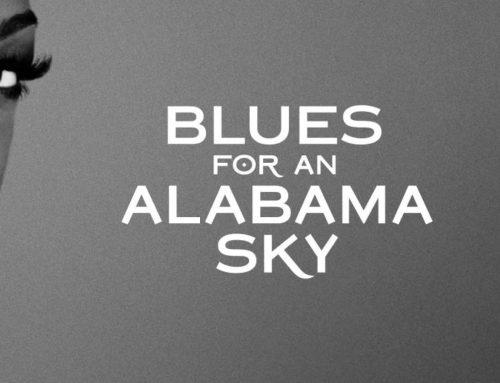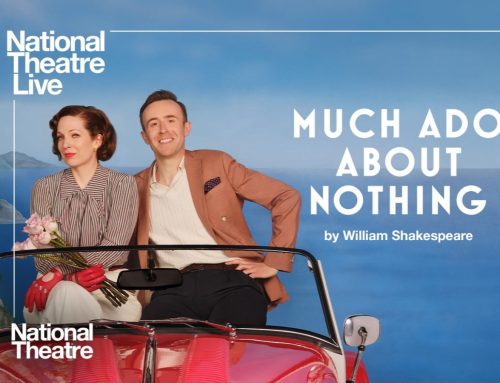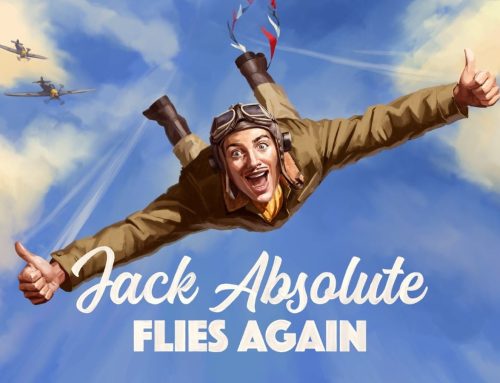This heavily biographical interpretation of Emlyn Williams’ play is a bold and striking reflection on the nature of writers and writing.
23 April 2022
Mostly, we do not see writers on stage alongside the characters they create. They are there in the background of course, as God-like progenitors, puppet masters or parents, issuing stage directions and framing the reality their creations inhabit.
In the text of his highly biographical work, The Corn Is Green, Emlyn Williams does indeed insert himself on stage. But it is through the conventional ‘author surrogate’ character, Morgan Evans, that the writer gets to influence events.
Director, Dominic Cooke’s central conceit in this self-aware, confident, and provocative production is to go beyond the text by writing Williams himself onto the stage as an entirely new character, observing and interacting with the personalities that he himself has written.
Stage instructions and directions become the dialogue through which this new character comments on and drives the action we see unfold. The narrative recounts both the events on stage, but also the creative struggle through which Williams gives birth to those events. In commenting on itself, this story of how a poor Welsh miner gains an education, simultaneously becomes a writer’s reflection on how he writes. It is all very meta.
Throughout the play characters emerge from darkly lit stairs from the bowels of the theatre, either to serenade the action with pit songs, or to sit silently onstage, observing and judging what takes place. Coal-mining references litter the production, partly I suppose because the director wants us to see how writing enables Williams to come to terms with his lost working-class past.
Does putting the internal working of a writer’s mind onto centre stage add to, or detract from, what is already a well-written and highly watchable play? In other words, does turning The Corn Is Green into a self-reflective, self-referential grand narrative on a writer’s art actually work?
On the positive side, this is a creative, eye-opening, and well put-together production
The first half is pared back, with little by way of scenery, and much miming to absent props. The writer, who we first see in his privileged university persona, flits domineeringly in and around his characters. He is determined to bully them into revealing their story in the way he sees fit, working out the plot structure as he goes. His is an oppressive, distracting presence, getting in the way of what is unfolding. As a way of setting up the much more successful second half it is clever, although intermittently tedious.
The second half begins with a more fully realised mise en scène, although the set’s wooden framework is visibly unfinished, and we still see the industrial backdrop of the Lyttleton behind.
In the final act the stage setting is fully realised, and the writer is broadly confident to let his characters tell the story without much intervention. Close to the end the William’s character literally halts the on-stage action to interpose a dramatic twist. This is a turning point which is genuinely well done and adds something to the original text.
On the less positive side, while it looks great and is always engaging, there were times that Cooke’s concept of The Corn Is Green felt like an idea in search of a vehicle to express it, rather than a way of presenting this particular work to best effect.
Nicola Walker’s performance as the severe and emotionally stunted schoolteacher, Miss Moffat, and Saffron Coomber’s unloved and unlovable, Bessie, were the highlights of a fantastic cast. Quite a lot of the time I would have simply preferred to let a cast of this quality go about their business as the dramatist intended, without the aid of the newly minted character. Sometimes, adding does not always mean improving.
Writer Emlyn Williams
Director Dominic Cooke
Cast
Emlyn Williams Gareth David-Lloyd
Miss Moffat Nicola Walker
Morgan Evans Iwan Davies
The Squire Rufus Wright
Bassie Watty Saffron Coomber
Full Disclosure: I paid full box-office price for the ticket.





